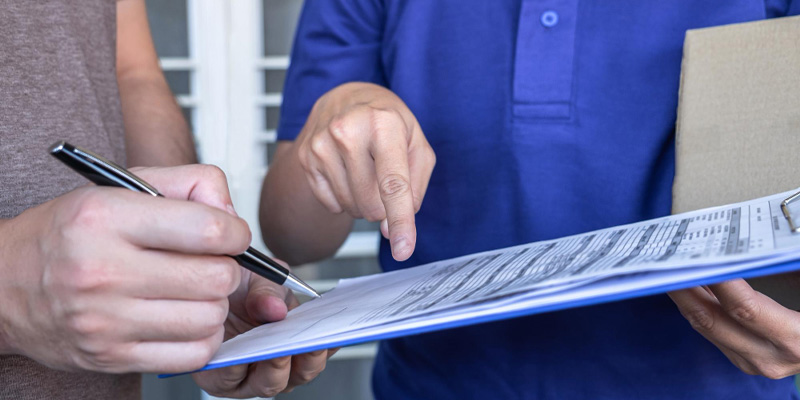Proof of Service: How to Prove You Served Court Papers in Ontario
“Proof of service” is the evidence you file to prove to the court that you actually delivered (served) some legal documents to the other side as the law demands. Without proof of service, cases get delayed, motions are struck, and default judgments can be undone if service wasn’t in fact done, or even if it was done but you can’t prove it properly.
In Ontario courts, “proof of service” usually means filing a General Affidavit of Service. This is basically a statement by you or the person who served the documents (or, in some civil cases, a Lawyer’s Certificate of Service).
To simplify things, you can just use this guided wizard to fill an affidavit of service in a few minutes and get a download-ready PDF.
What is Service and Why is Proof So Important?
“Serving” court documents is the formal process of delivering them to the other parties in a lawsuit. This ensures that everyone has a fair opportunity to know what is being claimed, to respond, and to participate in the legal process. Without proper service, a case can be delayed or even dismissed.
This is where proof of service comes in. It is the formal evidence you provide to the court to show that you have correctly served the documents according to the rules. This proof is usually in the form of a sworn legal document called an Affidavit of Service. Filing this affidavit assures the court that the other party is aware of the proceedings, allowing your case to move forward.

How to Serve Court Papers in Ontario: The Basics
1) Make sure your method of service fits the rules
Ontario’s Rules of Civil Procedure and Family Law Rules spell out how to serve different documents. For many civil documents (not the initial claim), email service is allowed without consent or a court order, and you no longer need a separate certificate to prove email service. In family cases, Rule 6 lists regular and special methods (including email), and the form itself captures which one you used.
Timing matters. In Ontario practice:
- Email or fax service counts the same day if sent before 4:00 p.m.; after 4:00 p.m., it counts the next business day.
- Mail counts on the 5th day after mailing.
- Courier is generally effective on the 2nd day after you give it to the courier (or next business day if that’s a holiday).
These timing rules affect filing deadlines, so build them into your calendar.
2) Fill out the affidavit of service
The person who actually served the papers must complete the affidavit (not the party who needs service, unless you served the documents yourself or if rules permit it for that document). The affidavit states who was served, what was served, when, where, and how service happened, and who did the serving. The Ontario forms spell out the required details.
Tip: Attach your evidence. For example, include Canada Post receipts, courier slips, the email you sent (with date/time and recipient address), a read receipt if you got one, or a screen print from an electronic document exchange.
To avoid any confusion, just use this wizard to fill an affidavit of service in a few minutes and get a print/email-ready PDF.
3) Commission (swear or affirm) the affidavit
An affidavit must be sworn or affirmed before a commissioner for taking affidavits or a notary public. Ontario permits remote commissioning by audio-video, as long as the legal conditions are followed, and many notaries/commissioners provide it. That means you can complete the affidavit by video meeting, with the commissioner recording the details and applying the proper jurat wording.

4) File your proof of service
File your commissioned proof with the court. Ontario now accepts many filings online:
- Civil/Divisional Court: Civil Claims Online or Civil Submissions Online.
- Family: Family Submissions Online.
- Small Claims: Small Claims Court Submissions Online.
Each portal has instructions; the Small Claims’ guide even shows precisely how to upload an Affidavit of Service. If you’re filing close to a deadline, remember service-timing rules can push the “effective date” to the next day.
All about the Affidavit of Service
The most common way to provide proof of service is by completing and filing an Affidavit of Service. This is a legal document where the server swears or affirms that they have served the court papers. The specific form you use may vary depending on the court. For example, in family law, you will likely use a Form 6B: Affidavit of Service, while in other civil proceedings, a Form 16B might be required.
The affidavit must include specific details about the service, such as:
- The full legal name of the person who served the documents (the server).
- The full legal name of the person who was served.
- A list of the documents that were served.
- The date, time, and location where the documents were served.
- The method of service used (e.g., personal service, mail, email).
The server must then sign the completed Affidavit of Service in the presence of a Commissioner for Taking Affidavits.
The Role of a Commissioner for Taking Affidavits
A Commissioner for Taking Affidavits is a person authorized to administer oaths and take affidavits. In Ontario, lawyers and paralegals are automatically commissioners. You can also find commissioners at courthouses and some ServiceOntario locations.
When the server signs the affidavit in front of the commissioner, they must swear or affirm that the information in the document is true. The commissioner will then sign and stamp the affidavit, making it a legally recognized document that can be filed with the court as your proof of service. It is a criminal offense to knowingly swear a false affidavit.

Frequently Asked Questions (FAQ)
-
What is the main keyword I should know about this process?
The main keyword you should be familiar with is “proof of service.” This is the legal term for the evidence you provide to the court demonstrating that you have properly delivered court documents to the other party.
-
Where can I get an Ontario proof of service form?
You can typically find the appropriate Affidavit of Service forms on the Ontario Court Forms website. For family law matters, you will likely need Form 6B, and for general civil litigation, Form 16B is common. It’s always a good idea to check the specific rules for the court your case is in to ensure you are using the correct form.
-
How do I prove I served documents if I did it by mail?
If you serve documents by regular mail, the person who mailed them will fill out the Affidavit of Service, stating the date and the address to which the documents were sent. For certain documents, like a Plaintiff’s Claim in Small Claims Court served by registered mail or courier, you’ll need to attach the signature confirmation or delivery receipt to your Affidavit of Service.
-
What if the person I’m serving lives outside of Ontario?
Serving someone outside of Ontario can be more complex. If the person is in another Canadian province or territory, you may be able to serve them using the regular rules. However, if they are in a country that has signed the Hague Service Convention, you may need to follow specific international procedures, which can involve serving them through a Central Authority. It’s highly recommended to seek legal advice if you need to serve someone outside of Canada.
-
Can I use a professional process server to prove I served the documents?
Yes, and it is often a good idea. A professional process server is experienced in the rules of service and can ensure it is done correctly. After they serve the documents, they will complete and swear the Affidavit of Service for you, which you can then file with the court. This provides a strong and credible proof of service.
-
What happens if I can’t find the person I need to serve?
If you have made reasonable efforts to find and serve the person without success, you may be able to ask the court for an order for “substituted service.” This would allow you to serve the documents in a different way, such as by leaving them with a relative or sending them to the person’s workplace. You must get the court’s permission before using a method of substituted service.
-
Can I prove I served documents electronically, like through email?
In some cases, you can serve documents by email, but there are specific rules. Generally, you need the other party’s consent or a court order to serve documents by email. When you do, the email must contain specific information, such as the date and time of the email, the names of the documents being sent, and contact information in case of transmission problems. A copy of the email should be attached to the Affidavit of Service.
-
What should I do after I have completed the Affidavit of Service?
Once the Affidavit of Service has been completed and sworn by the server in front of a commissioner, you must file it with the court. This is a critical step, as it formally enters your proof of service into the court record. Without filing the affidavit, the court has no official record that the documents were served, which could stall your case.
-
Is there a deadline for serving documents and filing the proof of service?
Yes, there are strict deadlines for both serving documents and filing your proof of service. These deadlines vary depending on the type of document and the court rules. It is crucial to be aware of these timelines to ensure your case proceeds smoothly. Missing a deadline can have serious consequences for your case.
-
What if I make a mistake on the Affidavit of Service?
An Affidavit of Service is a sworn legal document, so accuracy is very important. If you make a mistake, it is best to redo the form correctly and have it sworn again. Submitting an inaccurate affidavit could be challenged by the other party and could cause delays in your legal proceedings. If you are unsure about how to complete the form, it is always best to seek legal advice.


